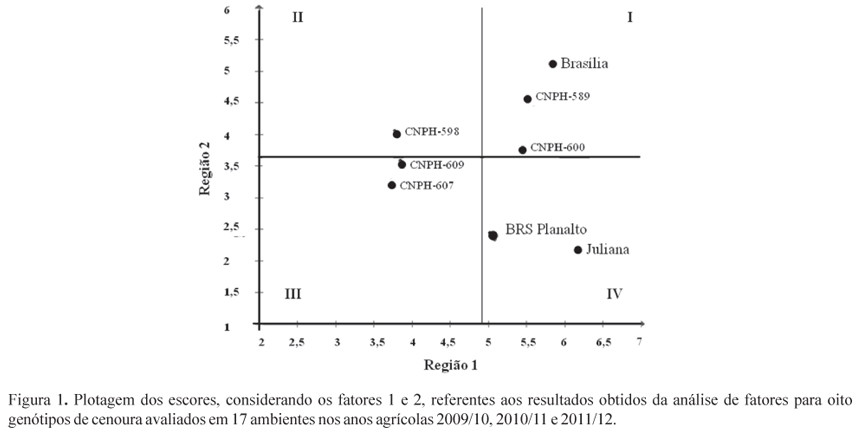The objective of this study was to evaluate the stability and adaptability of eight genotypes of carrots (three cultivars and five populations) in 17 environments in the Northeast, Midwest, Southeast and Southof Brazil in the crop years 2009/10, 2010/11 and 2011/12. The experiments were grown from November to January of each year according to the farmers' crop calendar. The plot was composed of an area with 1.0 m² in a randomized block design with three replications. The cultural practices were the same used by the farmers. At harvest, the marketable roots were quantified and the values converted to tha-1. Analysis of variance was performed and after that, the factor analysis and bissegmented regression analysis to study the stability and adaptability. None of the genotypes showed wide adaptability. Factor analysis was able to cluster less than 50% of the evaluated environments. The ideal genotype was not found by regression analysis. The 'BRS Planalto' cultivar was the most adaptedby the bissegmented regression method while 'Brasília' CNPH-589 and CNPH-600 were the most adapted by factor analysis. The results obtained by these methods demonstrate the difficulty of recommending a cultivar for all producing regions and regionalized programs should be initiated. The use of the two associated methods allows safer decisions concerning the behavior of genotypes of carrot.
breeding; cultivars; Daucus carota L.; genotype x environment interaction; methodology





